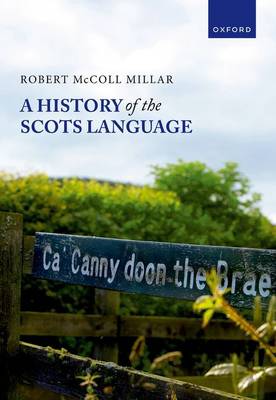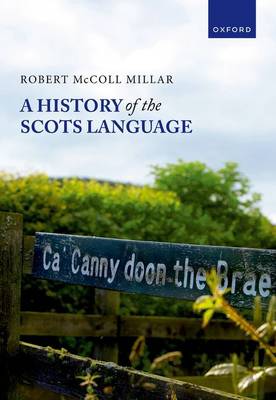
Door een staking bij bpost kan je online bestelling op dit moment iets langer onderweg zijn dan voorzien. Dringend iets nodig? Onze winkels ontvangen jou met open armen!
- Afhalen na 1 uur in een winkel met voorraad
- Gratis thuislevering in België vanaf € 30
- Ruim aanbod met 7 miljoen producten
Door een staking bij bpost kan je online bestelling op dit moment iets langer onderweg zijn dan voorzien. Dringend iets nodig? Onze winkels ontvangen jou met open armen!
- Afhalen na 1 uur in een winkel met voorraad
- Gratis thuislevering in België vanaf € 30
- Ruim aanbod met 7 miljoen producten
Zoeken
€ 64,45
+ 128 punten
Uitvoering
Omschrijving
This book provides a thorough yet approachable history of the Scots language, a close relative of Standard English with around 1.5 million speakers in Scotland and several thousand in Ireland, according to the 2011 census. Despite the long history of Scots as a language of high literature, it has been somewhat neglected and has often been treated as a dialect of Standard English. In this book, Robert McColl Millar explores both sociolinguistic and structural developments in the history of Scots, bringing together these two threads of analysis to offer a better understanding of linguistic change. The first half of the book tracks the development of Scots from its beginnings to the modern period, while chapters in the second half offer detailed descriptions of Scots historical phonology and morphosyntax, and of the historical development of Scots lexis. A History of the Scots Language will be a valuable resource for undergraduate and graduate students of the modern and historical Scots language, but will also be of interest to those studying the history of English and other Germanic languages.
Specificaties
Betrokkenen
- Auteur(s):
- Uitgeverij:
Inhoud
- Aantal bladzijden:
- 208
- Taal:
- Engels
Eigenschappen
- Productcode (EAN):
- 9780198864004
- Verschijningsdatum:
- 15/12/2023
- Uitvoering:
- Paperback
- Formaat:
- Trade paperback (VS)
- Afmetingen:
- 178 mm x 239 mm
- Gewicht:
- 362 g

Alleen bij Standaard Boekhandel
+ 128 punten op je klantenkaart van Standaard Boekhandel
Beoordelingen
We publiceren alleen reviews die voldoen aan de voorwaarden voor reviews. Bekijk onze voorwaarden voor reviews.











